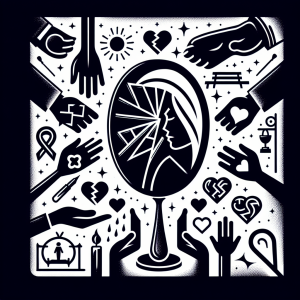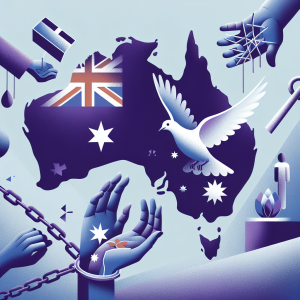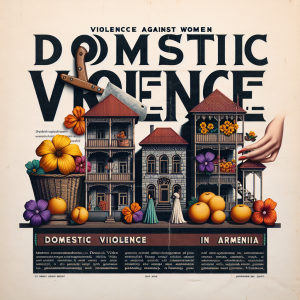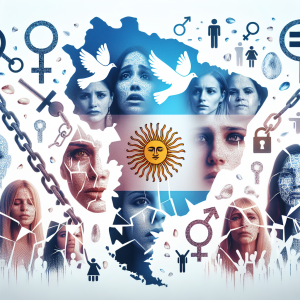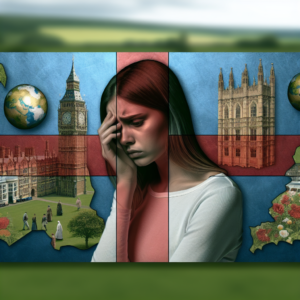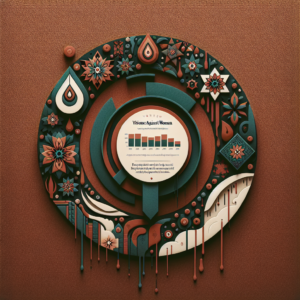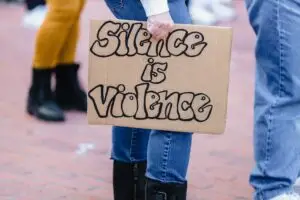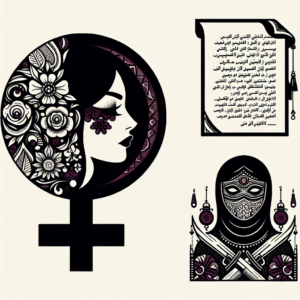#MeToo
Shattering the Silence: Unveiling the Domestic Violence Crisis in Albania
In societies across the globe, domestic violence persists as a deeply ingrained problem, and Albania is no exception. Despite advancements in legal frameworks and public awareness efforts, the dark veil of domestic abuse continues to cast a shadow over numerous households, often shrouded in silence and societal shame. This article endeavors to illuminate this concealed crisis, underlining the critical need to shatter the silence enveloping domestic violence in Albania.
Grasping the Magnitude of the Issue
Domestic violence in Albania is a complex issue, comprising physical, emotional, sexual, and financial abuse. It spans across all demographics, disproportionately affecting women and children. The issue’s complexity is further magnified by cultural norms that tend to stigmatize victims instead of offering support.
Societal and Cultural Dynamics
In numerous Albanian communities, entrenched traditional values and societal expectations can inadvertently fuel the cycle of domestic violence. Prioritizing family honor and the negative connotations of divorce can compel victims to suffer in silence. This cultural landscape poses significant challenges for victims seeking assistance or a way out of abusive environments.
Data and Insights
Despite challenges in obtaining precise statistics due to underreporting, the available data presents a grim reality. Various studies indicate that a substantial portion of Albanian women have faced domestic violence at some point in their lives. However, these statistics likely represent just the tip of the iceberg, as countless incidents remain unreported due to fears of backlash or societal condemnation.
Survivor Narratives
The personal accounts of those who have endured domestic violence in Albania are both devastating and enlightening. These stories reveal the survivors’ resilience and the pressing need for systemic reform. Victims often recount feelings of isolation and insufficient support from their communities and legal authorities, rendering the prospect of escaping abuse daunting.
Legislative Progress and Obstacles
Albania has seen progress in enacting laws aimed at curbing domestic violence, with measures in place to protect and assist victims, such as restraining orders and shelter provisions. Nonetheless, the effective enforcement of these laws is frequently impeded by limited resources, lack of public awareness, and societal attitudes that downplay the severity of domestic abuse.
Hurdles to Achieving Justice
Victims seeking justice for domestic violence in Albania encounter numerous barriers, including:
- Scarce legal support: Many victims do not have the financial means or the knowledge required to effectively navigate the legal system.
- Societal judgment: The fear of social ostracization can deter victims from coming forward.
- Insufficient institutional response: There is often a lack of empathy and understanding from law enforcement and judicial personnel.
Educational and Awareness Initiatives
A comprehensive approach, with a strong emphasis on education and awareness, is essential to break the cycle of domestic violence in Albania. Campaigns targeting the general public and professionals (including police officers, healthcare workers, and educators) can help shift attitudes and enhance support for victims.
Community Engagement Programs
Programs aimed at raising public awareness about the signs of domestic violence and the importance of supporting victims are vital for societal change. These initiatives also offer a platform for survivors to share their experiences, promoting empathy and solidarity.
Training for Professionals
It is crucial to provide specialized training for professionals likely to encounter domestic violence situations. This includes police, medical staff, and teachers, ensuring that victims receive compassionate, supportive, and informed assistance.
The Impact of Solidarity and Support
The role of solidarity and support in aiding victims cannot be overstated. Facilities like community centers, hotlines, and shelters are indispensable in offering refuge for those fleeing abuse. Additionally, the backing of friends, family, and the community can significantly aid victims in seeking help and rebuilding their lives.
Conclusion: A Call to Action
The covert crisis of domestic violence in Albania demands immediate and decisive action. It is imperative to confront and challenge the societal norms that perpetuate abuse. Collective responsibility is key in supporting victims, holding perpetrators accountable, and striving for a society free from violence.
As human rights advocate Nada Al-Ahdal poignantly stated, “Protecting human rights is not an option, but a responsibility of us all” [@nadalahdal]. This principle highlights the importance of standing against domestic violence, not just in Albania, but globally. Only through united efforts and a dedication to human rights can we hope to eliminate this widespread issue.
#NadaFoundation
#domestic_violence
#Nada_Foundation
#NadaAlahdal
#Breaking #Silence #Hidden #Crisis #Domestic #Violence #Albania
breaking-the-silence-the-hidden-crisis-of-domestic-violence-in-albania





